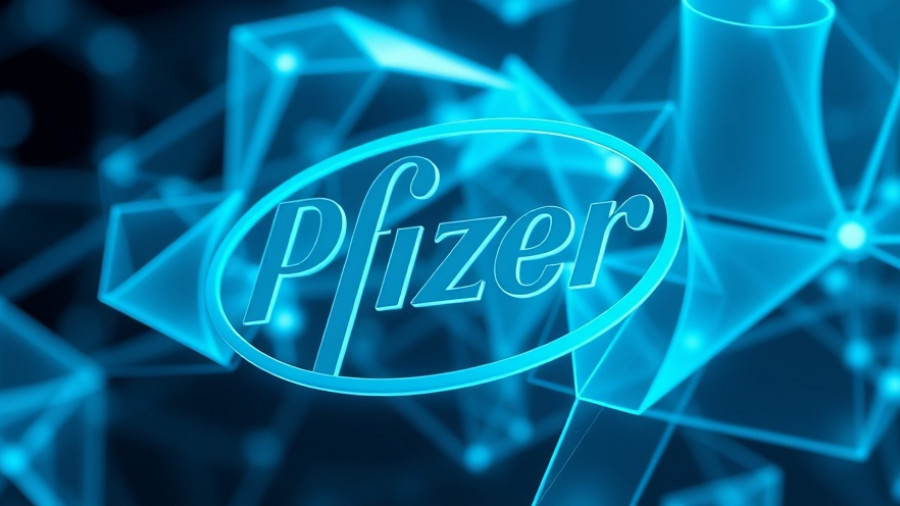
The Battle for Metsera: Pfizer's Bold Legal Move
In a dramatic turn of events within the pharmaceutical landscape, Pfizer has initiated legal action to sidestep rival Novo Nordisk's bid for the biotech company Metsera, which specializes in obesity treatments. This comes after Novo announced a proposed acquisition that could value Metsera at an impressive $9 billion, overshadowing Pfizer's earlier bid of $4.9 billion.
Understanding the Legal Basis
Pfizer's lawsuit, filed in Delaware, claims that Novo’s offer for Metsera poses significant regulatory challenges, insinuating that it is designed to evade antitrust scrutiny. Pfizer argues that such maneuvers by Novo, a company already dominant in the market with products like Wegovy and Ozempic, could potentially stifle competition rather than foster innovation.
At the heart of the lawsuit is the assertion that Metsera's deal with Pfizer is still valid and that Novo’s approach violates previous merger agreement obligations. Adding to the urgency, Pfizer has requested a temporary restraining order to prevent Metsera from terminating their agreement while the court considers its claims.
The Stakes for Pfizer
This legal battle is more than just a corporate conflict; it reflects Pfizer's strategic aim to enter the burgeoning obesity treatment market. Despite Pfizer’s past setbacks — including the discontinuation of its own obesity treatment earlier this year — the obesity market is projected to reach $150 billion by the early 2030s, making it a pivotal frontier for pharmaceutical companies.
Analysts suggest that Metsera's portfolio, which includes potential new treatments, could generate substantial revenues and thus represents a significant opportunity for Pfizer.
The Larger Market Dynamics
This corporate tussle isn't occurring in isolation. The broader context includes an intense race among pharmaceutical companies to dominate the obesity treatment market, where Novo Nordisk has taken a significant lead. With established medications already performing well, any delay or restriction in achieving acquisitions like Metsera could solidify existing market divides, stifling new entrants like Pfizer.
Given that obesity treatments are rapidly evolving, the stakes are high for consumers as well, who are increasingly in need of effective solutions amidst rising health concerns.
Implications for Patients and Healthcare
For those affected by obesity and related conditions, the outcome of this legal battle might impact the availability and cost of critical treatments. As competition grows, patients might benefit from improved access to innovative therapies. However, if dominant players successfully suppress competition, it could set a concerning precedent for drug pricing and availability.
Moving Forward: Predictions and Perspectives
As the case unfolds, it will be fascinating to observe how this influences market dynamics. Pfizer's need to innovate may push them to create or improve current offerings, while Novo's well-established status might allow for strategic maneuvers. For investors and stakeholders alike, watching the litigation could provide insights into future drug pricing, availability, and the overall landscape of healthcare innovation.
In considering these developments, homeowners, renters, and community members in Central Florida are encouraged to stay informed about changes in healthcare that could profoundly impact their lives and health decisions.
What You Can Do Next
The rapidly changing healthcare environment necessitates informed decision-making. Individuals can engage with healthcare developments by staying updated on news regarding pharmaceutical innovations and market competition. Advocacy for transparency in drug pricing and access to medications is crucial in fostering an environment that prioritizes community health.
As the industry evolves, being informed not only enhances individual health literacy but also equips communities to advocate for better health policies that address their needs.
 Add Row
Add Row  Add
Add 




Write A Comment